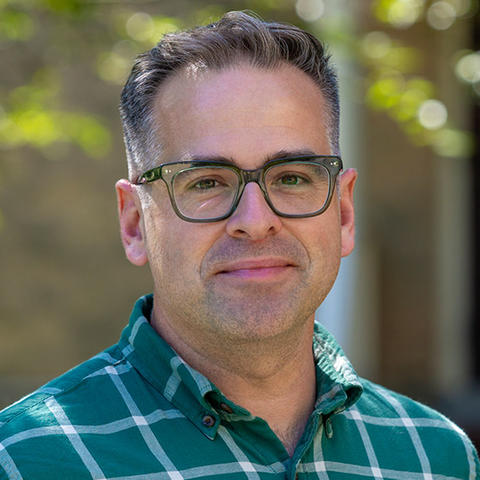Seun Eisape '24 is Haverford’s First-Ever GEM Fellow

Photo by Paola Nogueras.
Details
Eisape will pursue a PhD at the University of California Berkeley to explore the potential of brain-computer interfaces and natural language processing.
Since their broad adoption, computers and artificial intelligence have made humans’ lives easier and more efficient. Beginning this fall, when he begins his PhD studies at the University of California, Berkeley, Seun Eisape ’24 will explore how they can also better the lives of those living with serious neurological conditions.
He’ll be aided on his journey by a fellowship from the National GEM Consortium, which seeks to bolster the participation of primarily underrepresented people at the master’s and doctoral levels in engineering and science. According to the College’s and GEM’s records, Eisape is the first Ford to receive the honor. The program also paired Eisape with an employer sponsor, the Human Language Technology Center at Johns Hopkins University in Baltimore, where he’s working until moving to California in mid-August.
Upon completing his program at Berkeley, Eisape says he hopes to either become a professor or start his own company focused on brain-computer interfaces (BCI), which are direct connections between the human brain and technology that can decode and stimulate neural activity. Scientists believe they hold the power to control prosthetics, treat significant neurological disorders, or even enhance human capabilities, leading to propulsive research in recent years. Perhaps the most headline-generating manifestation is Elon Musk’s Neuralink, which is currently seeking people living with quadriplegia to test its implant-based interface through a clinical trial.
“Say someone has aphasia and they are no longer able to speak. That’s something you can have from birth or something you develop later in life,” Eisape says. “But if you can decode their brainwaves into speech, you invariably give them the availability to speak.”
Eisape was first introduced to the world of computer science while a student at an underserved high school in Newark, New Jersey. His older brother told him it was a compelling subject because all students were of equal standing in what was, for them, a novel subject. That wasn’t the case when he arrived at Haverford, Eisape says.
“In my classes, I encountered students who had been coding for years. Catching up with their abilities was a challenge — especially as I had significantly fewer resources than other students,” Eisape, who worked as many as four jobs at a time to support himself during his time at Haverford, says. “However, this taught me to focus on developing my own urgency and cultivating my own motivation.”
That motivation is evident in Eisape’s pursuit of summer opportunities during his time at Haverford. During the summer following his first year, he worked at Boston College’s Language Learning Lab, where he developed a new method to build a dataset of more than a million nouns in eighty languages to discover concepts permeating human language. He also worked as a software engineer for ANGI, formerly Angie’s List, and was a data scientist for the Ask Media Group, which runs ask.com. He regularly traveled between Ask’s offices in Manhattan and Swarthmore College, where he worked in multiple computational cognitive science labs.
Eisape admits that his initial interest in computer science was due to its potential to provide a comfortable living. But his studies with advisor and Associate Professor of Computer Science Alvin Grissom II were marked by a freedom to explore, and in time Eisape realized that his interests in the field were driven by more than financial compensation.
“At first, it wasn't the best reason to get out of bed every day,” Eisape says. “But then I discovered this really interesting stuff, like using machine learning and AI to give people the ability to speak from their brain. Now I don't understand how it’s not everyone's interest.”
Haverford students and alumni interested in applying to nationally competitive fellowships are welcome to contact the Center for Career and Professional Advising (CCPA) for guidance and support.




